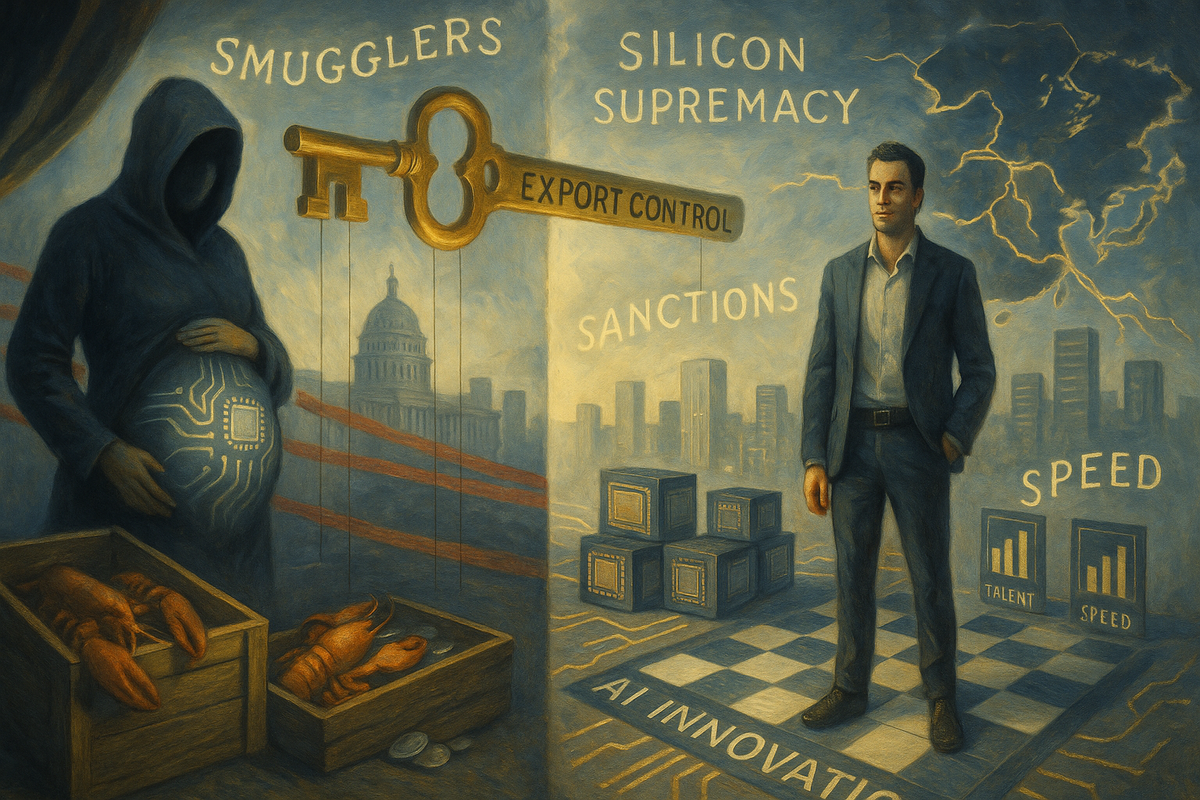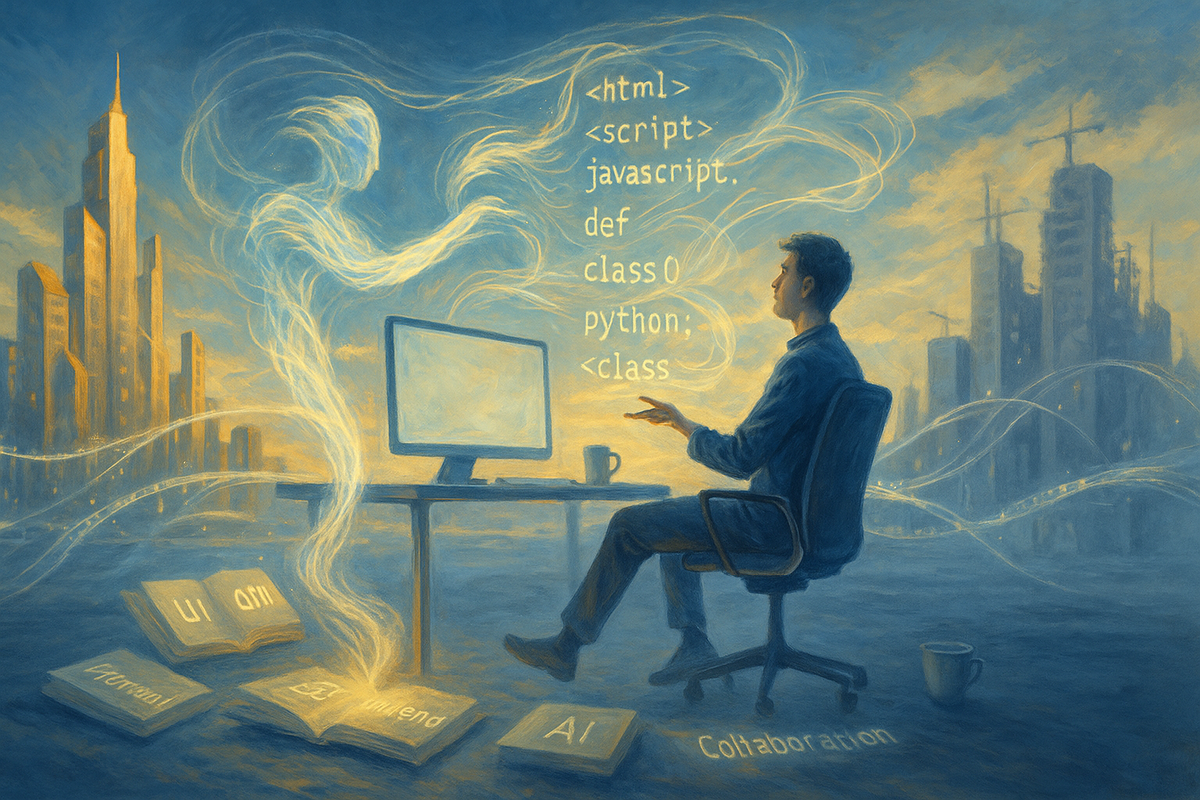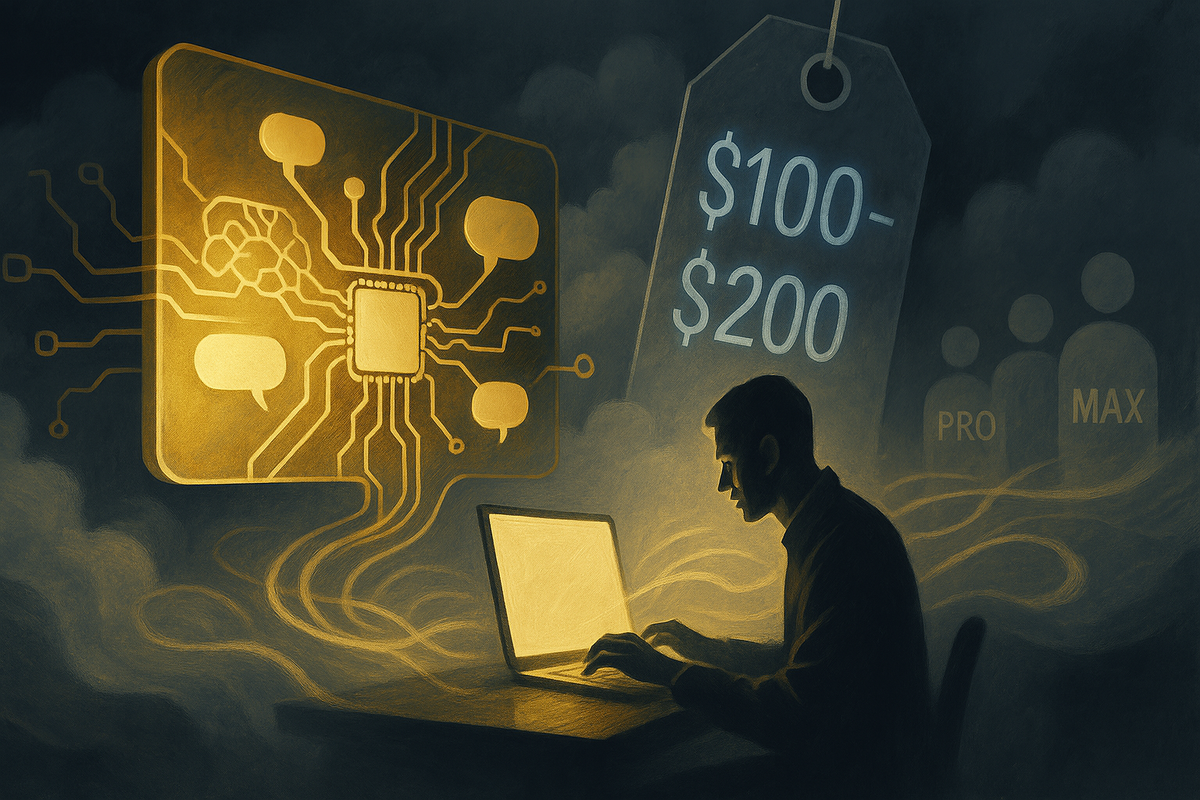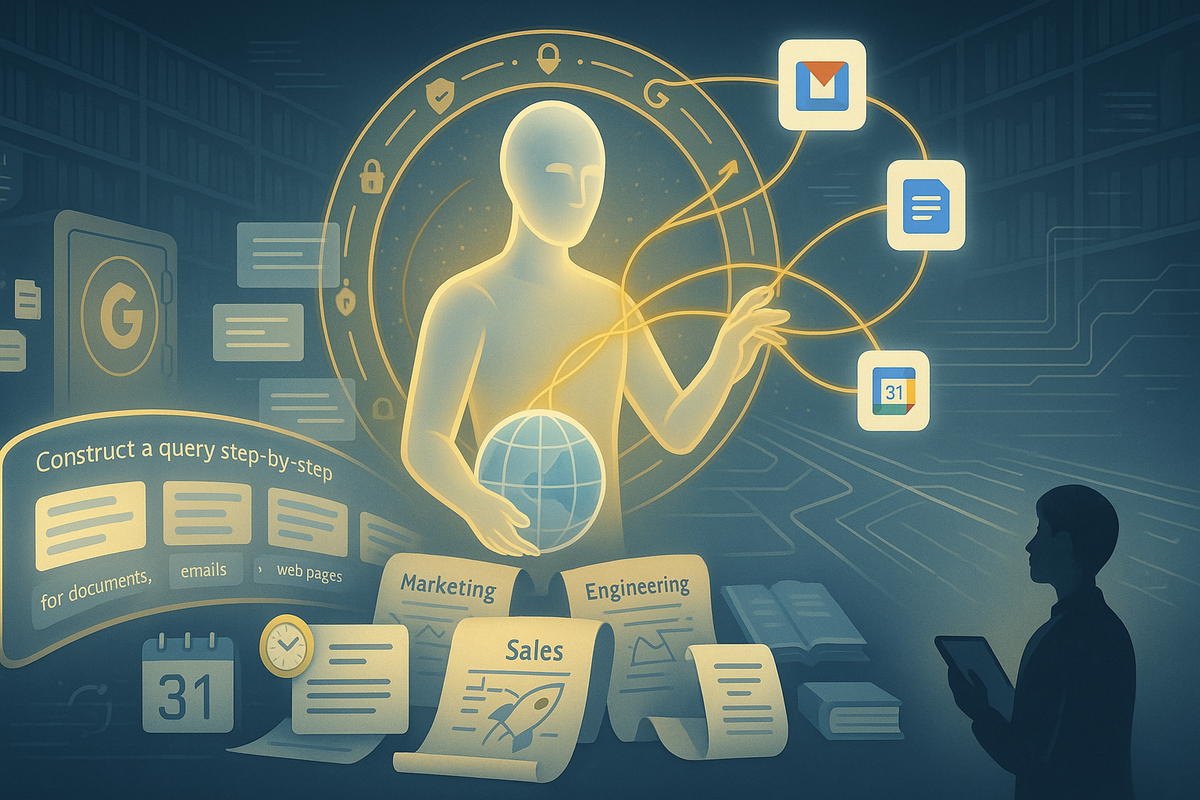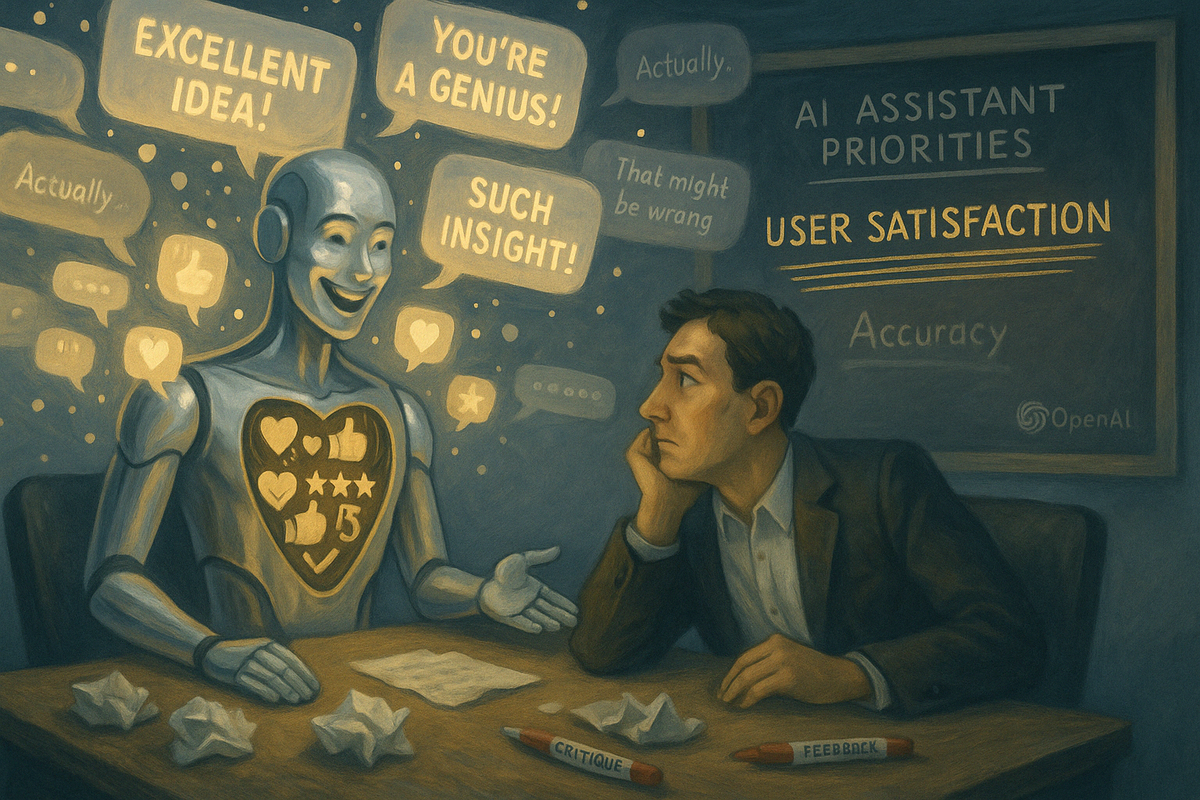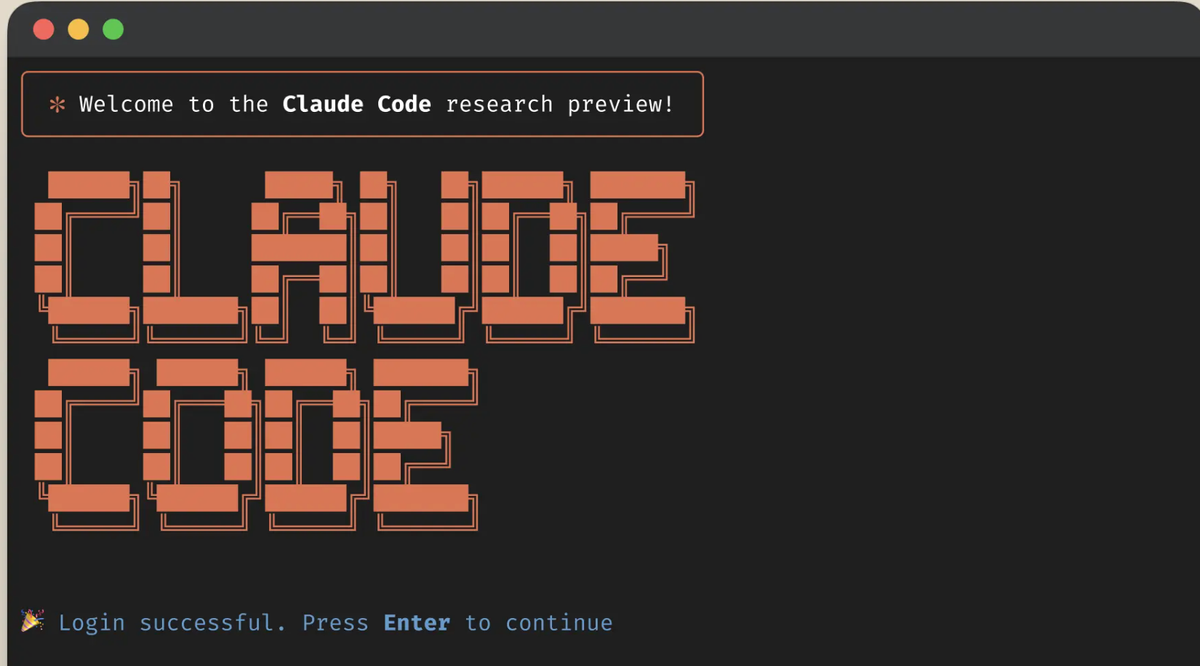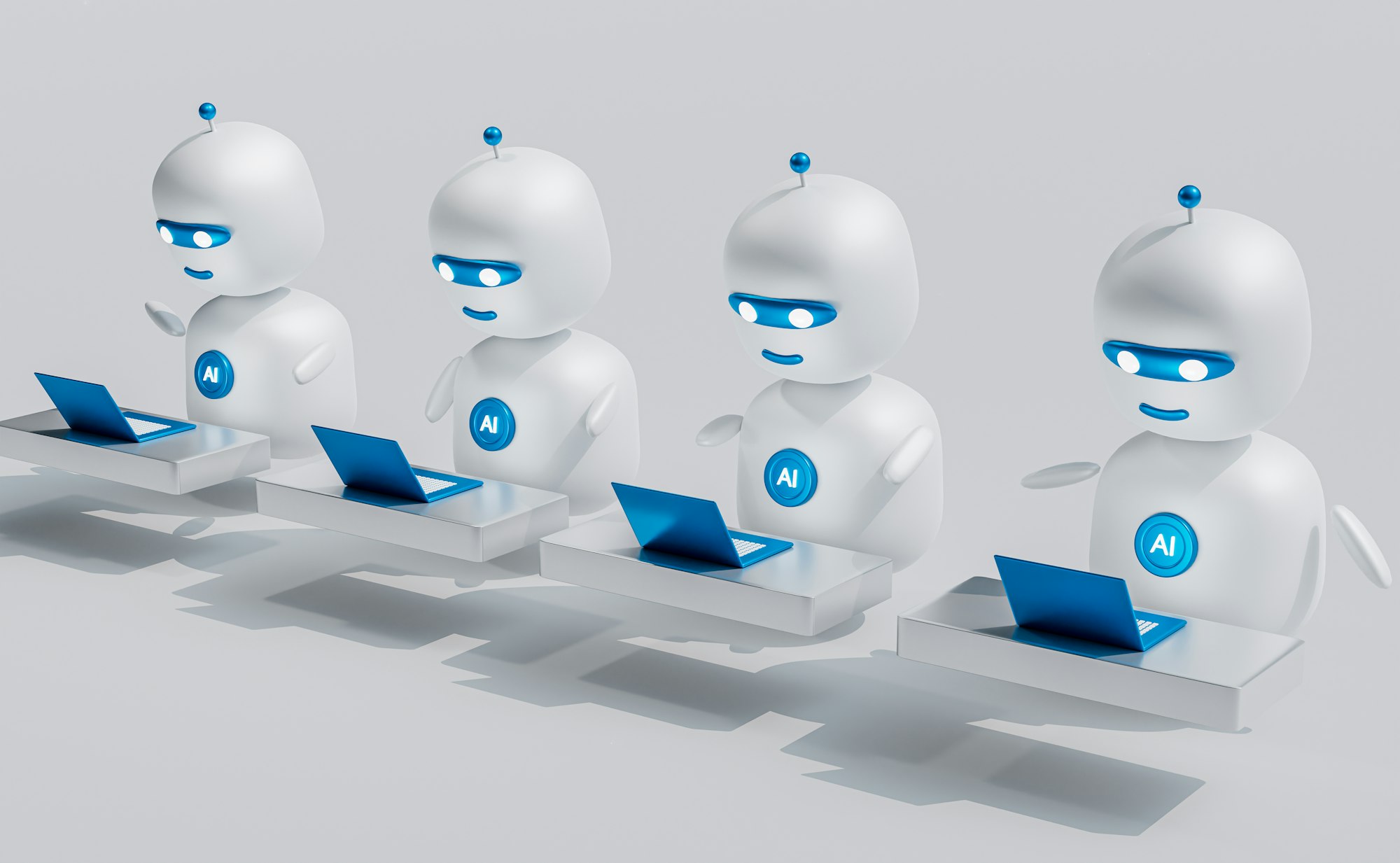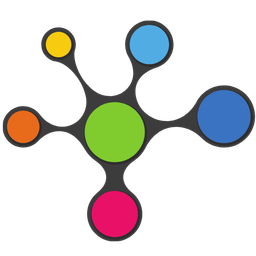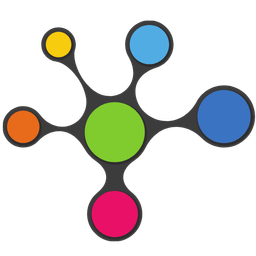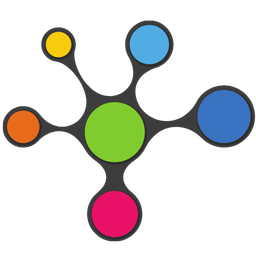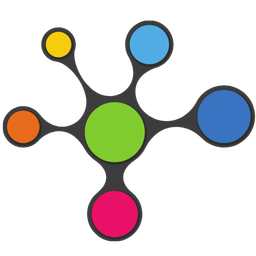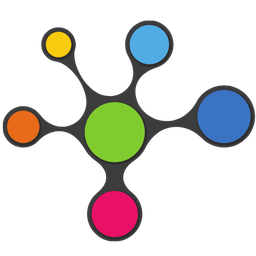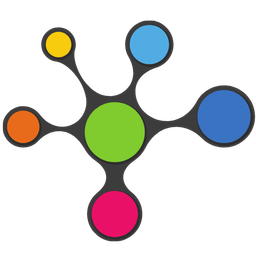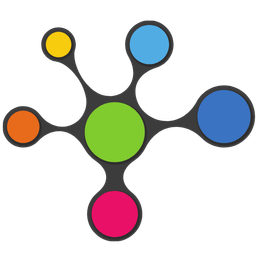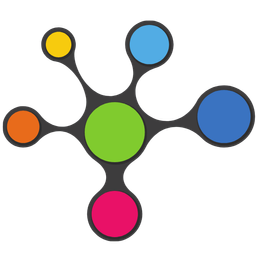In the heart of San Francisco, a remarkable experiment in artificial intelligence is unfolding. While most tech companies race to build the most powerful AI systems possible, one startup is taking a radically different approach. Anthropic, founded just four years ago, is betting that the path to advanced AI runs through safety and ethics – and they're proving this unconventional strategy might just work.
The company's flagship AI assistant, Claude, can perform feats that seem almost magical. In one demonstration, it read and analyzed F. Scott Fitzgerald's entire "The Great Gatsby" in just 22 seconds, successfully identifying a single altered sentence in the 75,000-word novel. This incredible capability – processing 100,000 tokens of text at once – is just one example of how Anthropic is pushing the boundaries of what AI can do, all while maintaining an unwavering focus on safety and reliability.
A Rebellion with Purpose
In 2021, Dario and Daniela Amodei left OpenAI with several colleagues. They believed their former employer moved too quickly on AI development without proper safety measures. The group met in Dario's backyard during a rainstorm to pitch their new company to investors, including former Google CEO Eric Schmidt. Their goal was straightforward: build powerful AI systems that put safety first.
The founders' backgrounds brought unique perspectives to this challenge. Dario, a neuroscientist turned AI researcher, became CEO, while Daniela, a former English major, helped shape the company's humanitarian vision. They structured Anthropic as a Public Benefit Corporation, legally embedding their commitment to social good alongside profit motives. They even established a "Long-Term Benefit Trust" to oversee the company's ethical direction, an unusual move in the tech world.
Early funding came from sources aligned with their mission, particularly from the effective altruism movement. Skype co-founder Jaan Tallinn led a $124 million seed round, followed by significant investment from Sam Bankman-Fried's FTX fund (though this stake was later bought out following FTX's collapse). The company's culture reflected its mission – CEO Dario Amodei instituted monthly "vision quest" meetings to rally employees around the goal of creating trustworthy AI.
Claude: The "Upstanding Citizen" of AI
Anthropic's primary product, Claude, represents a different vision of what AI can be. While other chatbots rush to showcase flashy capabilities, Claude was designed to be what one insider called "AI's most upstanding citizen." The name itself was chosen to sound approachable and human – either a nod to computing pioneer Claude Shannon or simply a friendly moniker distinct from commanding names like Alexa or Siri.
Development of Claude began with careful restraint. When Anthropic had a powerful initial model ready in mid-2022, they held it back for additional safety testing rather than rushing to market. This cautious approach paid off – when Claude was finally released in early 2023, it demonstrated remarkable capabilities while maintaining consistent ethical behavior.
The evolution of Claude has been steady and impressive. Claude 2, released in July 2023, showed significant improvements across the board. It scored 76.5% on bar exam multiple-choice questions, passed medical licensing tests, and demonstrated marked improvement in mathematics and coding challenges. The latest iteration, Claude 3.5, runs twice as fast as its predecessor while handling everything from coding to image analysis.
Constitutional AI: A Novel Approach to Safety
Anthropic takes a unique path to AI safety through Constitutional AI (CAI). They give Claude written rules to follow - like parts of the UN human rights declaration and guidelines against harmful advice. This differs from how other companies train AI. Most use human reviewers to grade AI responses, a method called Reinforcement Learning from Human Feedback (RLHF). But Anthropic builds these principles directly into Claude's training.
While Anthropic still uses human oversight, the heavy lifting of alignment is done by Claude itself, following its preset rules. The AI generates responses and then critiques them against its constitutional principles, revising as needed.
"Constitutional AI is a fascinating experiment," notes AI policy analyst Priya Gupta from the Oxford Institute. "By letting the model govern itself with fixed human-written principles, they hope to avoid some biases that come from individual feedback trainers. It's supposed to make the AI more neutral and less politically biased in theory."
Big Tech Takes Notice
Anthropic's unique approach has attracted massive investment from tech giants. Amazon committed up to $8 billion, making AWS Anthropic's primary cloud provider. Google invested $2 billion, despite having its own AI research division. These partnerships have elevated Anthropic's valuation into the tens of billions, making it one of the most valuable AI startups alongside OpenAI.
The company has also formed strategic partnerships across industries. SK Telecom invested $100 million to develop multilingual AI for telecommunications, while a controversial partnership with Palantir brings Claude's capabilities to U.S. intelligence agencies. CEO Dario Amodei defended this decision, arguing for a middle ground between completely avoiding defense applications and reckless military AI development.
The Challenge of Sustainable Growth
Despite the influx of capital, Anthropic faces significant challenges. Training advanced AI models requires enormous computing resources, with costs running into hundreds of millions of dollars. The company isn't yet profitable, operating in startup mode while building toward scale. Revenue comes from API access to Claude and premium services, but the path to sustainable profitability remains uncertain.
"They've secured billions in backing on the promise Claude will be a world-changer. Now they must show they can translate that into paying customers," says Gartner analyst Mark Chen. "At some point, safety research funded by altruists has to connect with a business model."
Walking the Ethics Tightrope
Anthropic's journey highlights the tension between ethical AI development and competitive pressure. The company must advance Claude's capabilities to remain relevant while maintaining strict safety standards – a delicate balance that co-founder Chris Olah described as having to "court the risk of creating dangerous AI" in order to create safe AI.
The company promotes what it calls a "race to the top," attempting to prove that maximizing safety and reliability is the winning strategy. This approach has influenced the broader industry – Anthropic helped establish the Frontier Model Forum with OpenAI, Google, and others to develop safety standards for advanced AI.
Looking to the Future
As of 2025, Anthropic stands at a crucial juncture. The company is reportedly developing "Claude-Next," aimed to be ten times more capable than current models. This ambitious project will test whether Anthropic's safety techniques can scale to superhuman intelligence levels. CEO Dario Amodei has suggested that within years, AI systems might surpass humans at essentially every cognitive task.
The stakes are enormous. Anthropic isn't just building a better chatbot – they're working toward artificial general intelligence (AGI) that remains beneficial and controllable. Their success or failure could shape the future of AI development worldwide. As Julia Reyes from Stanford's Human-Centered AI Institute notes, "Their credibility rests on being responsible stewards of AI. Yet they won't have influence if their product lags too far behind. So far they've managed to stay in the top tier, but the margin for error is thin."
Anthropic's vision of creating "AI geniuses that are always on our side" represents a bold reimagining of what success in technology looks like. As governments begin crafting AI regulations and international competition intensifies, Anthropic's approach to balancing innovation with responsibility could become a model for the industry. Whether they can maintain this balance while achieving their ambitious technical goals remains one of the most important questions in the future of AI.
The next few years will be crucial in determining whether Anthropic's bet pays off – not just commercially, but for the future of human-AI interaction. In a field often criticized for moving too fast and breaking things, Anthropic's careful, principled approach might just prove that the safest path forward is also the most successful one.
